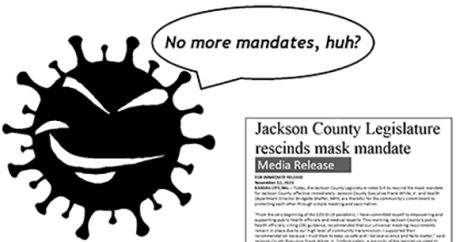Progressivism is increasing in the world
February 17, 2017
The idea of progressivism in the United States has been oft-mislabeled as radical and wishful thinking.
While it does promote change in the United States, it is not nearly as radical as it is made out to be. In reality, American progressivism often times is simply international centrism.
The United States is far and away the most interventionist country on Earth. According to The Intercept, during Barack Obama’s eight years as president, the U.S. carried out bombing operations in seven different countries. According to Politico, the United States currently has nearly 800 military bases and facilities in more than 70 countries. In stark contrast, Great Britain, France and Russia combine for about 30 worldwide. As an unintended consequence, it could certainly be argued that this American prevalence throughout the world has caused more harm than good by damaging international opinion of the United States, particularly in areas affected by American military operations and regime changes, and fueling anti-American sentiment in some cases. That sentiment was reflected in a late 2013 Gallup poll, in which people from more than 60 countries rated the United States as the biggest threat to world peace. The fact that, according to The Guardian, 513 Syrian civilians have been killed by international coalition air strikes since the strikes began in 2014, wouldn’t seem to brighten that image either. Staunch interventionism has not faired well in the fight against terrorism, and the only way for America to avoid living out the definition of insanity, military presence overseas needs to be decreased.
Conservatives have long said that the “pipedream” of ideas such as universal health care, tuition-free public college and significantly reducing student loan debts are simply out of reach in the realm of reality. “How in the world could we ever pay for it?” they ask. Ironically, that same question is not asked when the federal government decides to put half of its spending into the military and spends more on the military than the next eight countries combined, according to PolitiFact. It is not asked when, according to the Cato Institute, the federal government spends $100 billion each year on corporate welfare. It is not asked about those nearly 800 military bases the United States has worldwide, which according to Politico cost $85-$100 billion to maintain annually. Before jumping to conclusions about the outlandishness of spending money for the greater good of the people, those in the citizenry and the federal government would be well served to make sure that taxpayer dollars aren’t being foolishly wasted in other areas.
Let’s also not pretend that these ideas are in any way new ideas. The majority of the developed world guarantees health care as a right to citizens, and the U.S. non-coincidentally consistently ranks at or near the bottom among industrialized countries in terms of health care coverage and quality. A study reported by the Commonwealth Fund puts the U.S. at dead last when put up against Canada, western Europe, Australia and New Zealand. Most notably, the U.S. ranks last in this study in affordability, healthy lives, efficiency and equity of the health care system. The affordability issue is highlighted by a report by USA Today that health costs were the biggest cause of bankruptcy in the United States in 2013, with 1.7 million Americans living in households subject to health cost-related bankruptcies. Perhaps the most alarming statistic is cited by a 2009 American Journal of Public Health study, which estimated that as many as 45,000 Americans die each year due to lack of health care coverage, something that simply doesn’t happen under a universal healthcare system. Part of this healthcare issue also stems from the soaring prices of prescription drugs in the United States. This, however, can be solved with a very easy fix: allowing Medicare to negotiate drug prices. Negotiation is allowed in many other countries like Canada, the U.K. and the Netherlands and thus prescription drug prices are significantly lower. Moving to the left in terms of healthcare reform is not radical. It is simply moving toward the status quo of the international community.
European countries like Germany, Denmark, and Slovenia have also already blazed the trail of offering tuition-free college. While their tax rates are significantly higher than the United States, there are certainly other ways to come up with the resources for such a proposal, such as the plan put out by Bernie Sanders to impose a tax on Wall Street speculators that would cover the full cost of funding tuition-free college. This idea is not simply about jacking up tax rates on average Americans, as it is often made out to be.
The area where the United States is arguably the furthest behind the eight ball compared to the rest of the world is gun control. The U.S. remains perhaps the least-regulated industrialized country on the planet in terms of gun control legislation; despite having less than five percent of the world’s population, PBS reports that the U.S. possesses 35-50 percent of the planet’s civilian-owned guns and ranks first in guns-per-capita. BBC reports that the number of gun homicides per capita in the U.S. in 2012 was 30 times that of the UK. I do not mean to imply that the federal government needs to ban all guns or somehow take away the Second Amendment, but common sense legislation such as universal background checks, preventing the mentally ill from making gun purchases, a ban on assault weapons and a ban on high-capacity magazines are more than reasonable as well as overwhelmingly supported by the American people. Multiple polls, including Pew Research, New York Times, Gallup and Quinnipiac University, show that 85 percent or more Americans support universal background checks. Multiple polls including CNN and CBS News show majority support for a ban on automatic-style weapons as well as on high-capacity magazines. The issue of gun control is not radicalism or governmental tyranny, it is about common sense.
Common sense would also certainly apply to campaign finance reform. The U.S., quite frankly, has a system based in legalized bribery where politicians are routinely bought out by special interest groups and corporations, and thus begin to listen to their donors instead of their constituents. Simple logic and a look at the lack of productivity in Congress in recent years can deduce that getting the money out of politics is arguably the least controversial thing the government could possibly do.
Progressivism is not all about getting free stuff and proudly flying the hammer and sickle in our front yard. This is all largely about changing things for the better and keeping up with the rest of the world.




